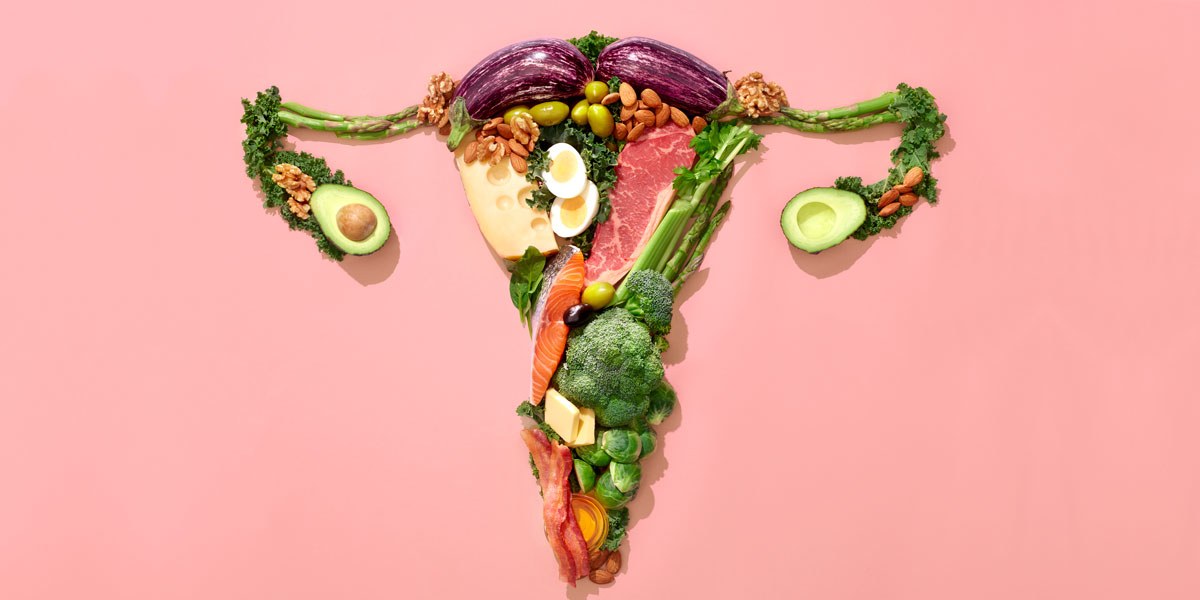Will a Keto Diet Mess With Your Period?

When it comes to periods, I consider myself lucky—mine shows up each month like clockwork; no need for tracking apps or a flag on my g-cal. But a few months ago, my regularly-scheduled programming went dark. I went through possible reasons for the ghosting: Pregnant? Not a chance. Birth control? Used every time. Meds? Nothing new there. Then it hit me: The only change was my diet.
I’d been test-driving the Ketogenic diet—the trendy but oh-so-restrictive eating plan that has people pumped over its ability to burn through body fat by seriously restricting carbohydrates in favor of meals packed with healthy high-fat foods. By limiting carbs, you drain your body’s main source of fuel, which forces your body to use fuel from fat, or ketones, as a substitute source of energy, says Ariane Hundt, a clinical nutritionist in New York City.
The radical shift can produce crazy results: I lost 11 pounds and three percent body fat in a month. That’s not necessarily a dangerous amount of weight to drop, but it’s certainly more than the recommended one-to-two pounds per week, and that alone could explain why I skipped my period, says Rekha Kumar, M.D., an endocrinologist specializing in weight control at Weill Cornell Medicine in New York City. When you lose weight quickly, your body registers the loss as a threat, and any system deemed unnecessary for survival begins to shut down to conserve resources. For women, the baby-making machine is typically first to go.
But that’s not the only way rapid weight loss might affect your period. “If you do one extreme thing to your body, there’s likely other downstream effects on important hormones,” Dr. Kumar says. Losing weight fast creates a state of stress in your body, which can trigger your adrenal glands to fire out more cortisol. Also known as the stress hormone, extra cortisol coursing through your system can lead to libido and menstrual changes and potentially suppress ovarian function if levels get too high. The potential end result: a disappearing period.
Skipping a period isn’t necessarily a big deal—it’s normal for your cycle to fluctuate every now and again, Dr. Kumar says—but when connected to a change in your diet, it could signal bigger health risks if your period is MIA long-term. In that case, you have to worry about the same things that postmenopausal women worry about, says Zandra Palma, M.D., a functional medicine physician at Parsley Health in New York City. Think: loss of muscle mass and bone mineral density. If you miss Aunt Flo too long, you can also risk potential fertility problems down the line—difficulty with ovulation is the reason about a quarter of all infertile couples can’t conceive, according to the Mayo Clinic.
It’s unclear how many women on Keto have had their periods pull a disappearing act. Forums like Reddit are filled with stories like mine but exact stats are hard to pin down. And many patients may not mention it to a doctor because, like me, a month or two of having a rogue cycle could be enough to scare them back to a well-balanced eating plan ASAP. As soon as that happens, the body starts to recover. (Dr. Palma says it can take up to three months for your period and the rest of your body to rebound.)
Even though your body will bounce back once you return to a balanced eating plan, doctors say it’s important to recognize just how much extreme diets can affect your body beyond the number that shows up on the scale. “It is unfortunate that some young women have placed such an emphasis on being thin that they would sacrifice their long-term health,” Dr. Kumar says.
That’s not to say the keto diet is bad for everyone, she adds. “When someone goes on the keto diet, [the question is], ‘are they an appropriate candidate for it?’” says Dr. Kumar. For someone who has a high body fat percentage, the keto diet may actually help restore an irregular cycle. But for those who just want to lose a couple extra pounds, “that’s where you really see a potential risk in terms of somebody jeopardizing their fertility or menstrual cycle,” Dr. Kumar says. To find a healthy balance, talk to a doctor or nutrition expert who can help you understand how a diet like keto might affect your reproductive health.
In my case, Keto wasn’t the right pick. I’ve found a more balanced diet—higher in protein, a little less fat, and moderate helpings of carbs—that’s allowed my ovulation to return to its regularly scheduled programming while I enjoy cauliflower pizza, tons of leafy greens, and even a slice (or two) out of the bread basket.
